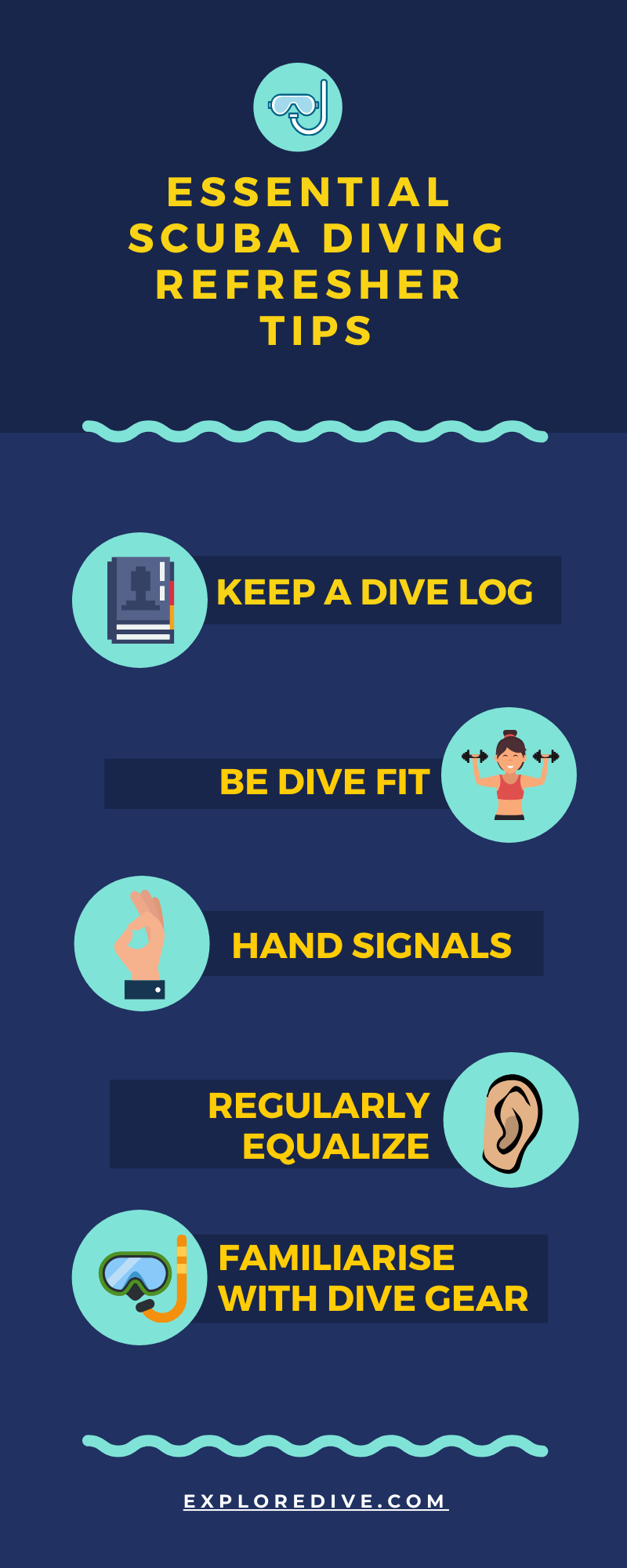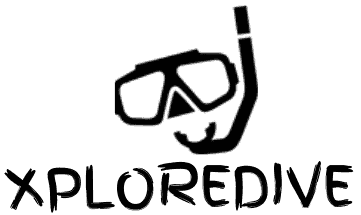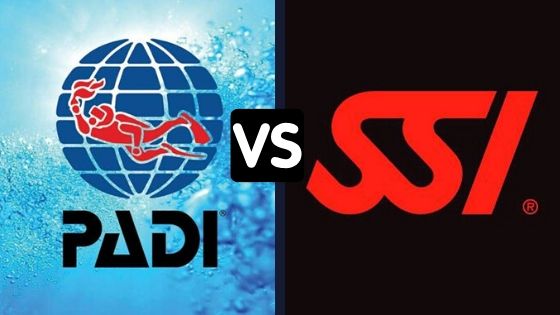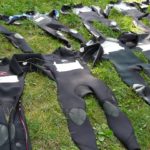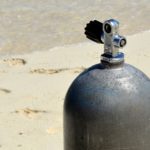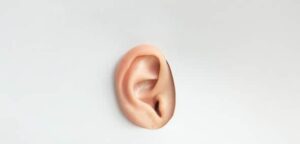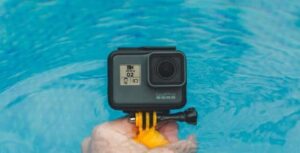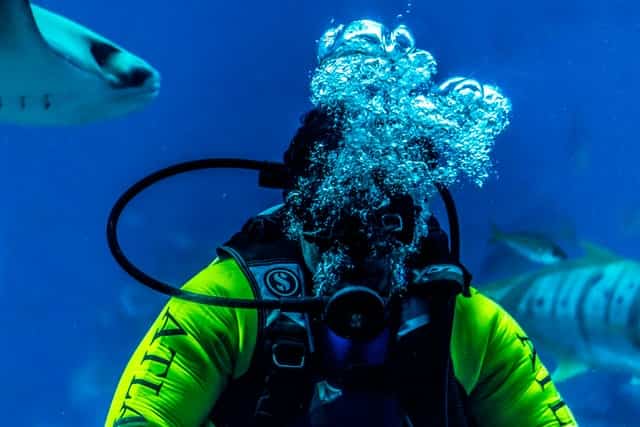
If you have not been scuba diving for a while and plan to go diving. You may need to do a scuba diving refresher course. It is recommended to do the diving refresher course if you have not been diving for over 6 to 12 months since your last dive.
The diving shops may require you to do the scuba diving refresher course if the gap since your last dive is too big. The refresher course will cover the basics that you learned when getting a diving cert. Even if you don’t have to do the refresher, there are scuba diving refresher tips that can help.
In today’s post, we will go through in more detail essential scuba diving refresher tips, so let’s get started!
Read more on common questions asked by divers
Essential Scuba Diving Refresher Tips
There are useful tips to remember that will help if need a quick scuba diving refresher. These are as follows.
- Be dive fit.
- Hand signals.
- Relax and slow down.
- Remember BCD, weights, releases, air, and final check.
- Regularly equalize as you descend.
- Practice clearing your mask.
- Keep a dive log.
Be Dive Fit
It should go without saying that you shouldn’t even consider diving unless you are fit enough to do so.
Scuba gear is heavy and a wetsuit compromises your mobility when out of the water. Strength training is useful here. And improving your flexibility will make it easier to get your scuba gear on and off.
But above all, you should have the good aerobic capacity to endure a dive for 30 minutes or longer. Regular walking benefits your general fitness and helps get you in shape for diving. Swimming is also a great form of exercise but anything that gets your heart pumping will improve your cardiovascular fitness.
If you have really let your fitness lapse since your last dive it makes sense to get checked over by a doctor. Book an appointment for a full physical exam to ensure you are still up to diving. You’ll also get advice on regaining your fitness should you need to.
Hand Signals
Take a few minutes to remind yourself of the hand signals used in diving. If you still have it to hand it’s a good idea to grab your old instruction manual from when you were first learning.
Find the section on hand signals and spend a couple of minutes as a refresher. If you don’t have your manual then you’ll find diving hand signals on Google.
Hand signals are generally pretty easy to understand and you probably remember the signal for OK. But make sure you know how to signal to your dive buddy that you have a problem.
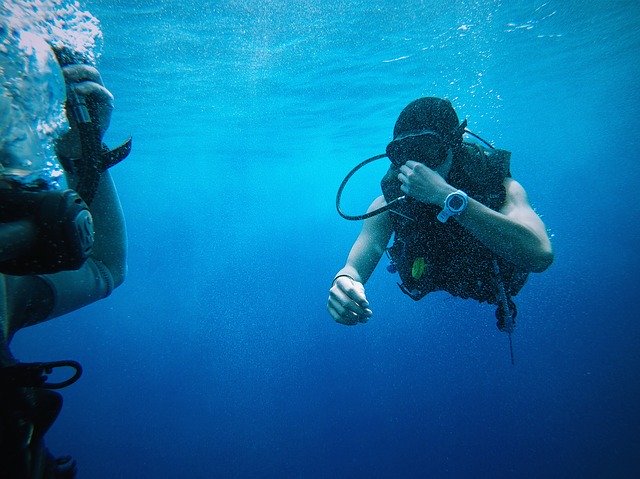
Relax And Slow Down
You must be diving again because you love the experience, so make sure you enjoy it.
Scuba diving requires specialized training and equipment. It’s easy to feel overwhelmed after taking a break from it and you may be feeling stressed as a result.
To fully enjoy your dive you need to relax. To do that takes as much time as you need to feel comfortable and confident. Don’t rush anything and try and slow everything down before you even get in the water.
Remember BCD, Weights, Releases, Air, And Final Check
If you haven’t been in the water for a while it can be helpful to treat yourself as a beginner, no matter your experience.
Reacquaint yourself with your equipment or make sure you know how to use the rental gear. If in any doubt ask the dive instructor.
Before beginning your dive take a few moments to do run through a final five-step safety check.
- Check your BCD to make sure you know how to use it. Check it inflates and deflates properly.
- Carry the right amount of weight on your belt or BCD. Use the same weight as on your last dive if you weigh about the same, or adjust up or down as required. If you’re not sure then an instructor will be able to help you.
- Make sure you know how the releases on your BCD and weight belt work in case you need to jettison them in an emergency. Learn how your buddy’s releases work too.
- Check your air tank, regulators, gauges, and dive computer if you’re using one. You don’t want any of these items to fail during the dive. Turn on your air and test it is working by taking a few breaths from your regulator.
- Finally, before entering the water make a visual check of your buddy’s equipment. Does everything look ok? Is yours ok too? Then you’re ready to go!
Regularly Equalize As You Descend
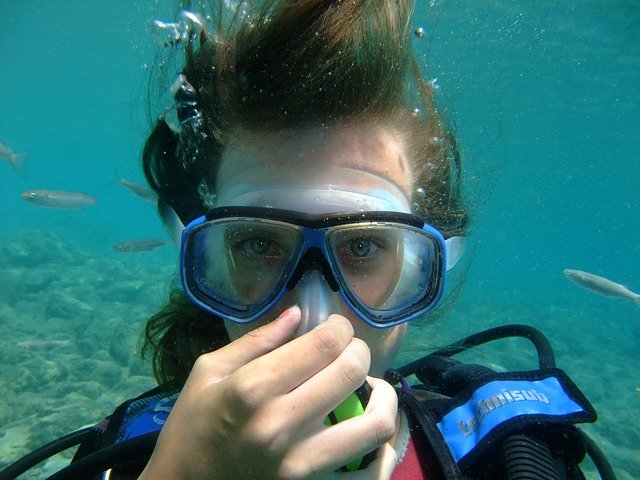
You probably remember that one of the first things you learn when diving is how to equalize.
It is so fundamental that it becomes second nature to most divers. Anyone with even a few dives logged tends to automatically equalize during a dive to avoid any pressure build-up in the ear.
After a break from diving, you may need to initially make a conscious effort to equalize as you descend. After a few minutes in the water, it should become automatic again. You’ll soon forget you’re even doing it.
If you do feel pressure in your ear then stop for a moment, squeeze your nose and blow. If that doesn’t work then ascend slightly and try again. If you can’t clear your ears then you should abort the dive.
At the end of the dive, your ears will usually equalize as you ascend. If you find your ears aren’t clearing then stop the ascent and descend slightly. This usually works, allowing you to continue your ascent.
Practice Clearing Your Mask
If possible practice removing and clearing your mask so that you will feel more comfortable with doing it while scuba diving.
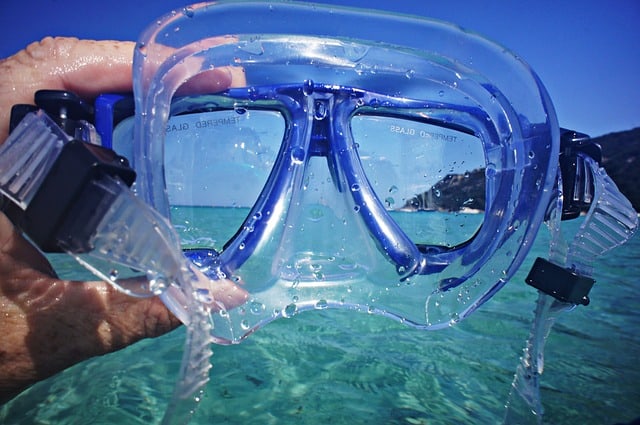
Keep A Dive Log
At the end of your dive write in your logbook as many details as you remember, including equipment and weight carried.
Log your initial and final air pressure. Note your buddy’s name, location, depth, time, and anything memorable you saw. Include as much as you like and get an instructor to sign it off. This is useful to demonstrate your dive experience and act to jog your memory when reminiscing about your dives.
Do I Need A Scuba Diving Refresher?
If you have not dived in the last 6 to 12 months, it is recommended by the Professional Association of Diving Instructors (PADI) that you should take a refresher course.
The course will involve the instructor reviewing the knowledge you learned in your Open Water Diver course and going doing a couple of dives.
Wrapping Up
Finally, if you have not been diving for a while it is important to refresh your diving skills. This is for your health and safety and we all know that if not doing something for a while things start to get vague and the skills learned become rushy.
And that’s it for now! I’d love to know if this guide on essential scuba diving refresher tips has helped you. Let me know if you have any questions and let me know if there is more to add.
Did you enjoy this post? Then don’t forget to pin it!
